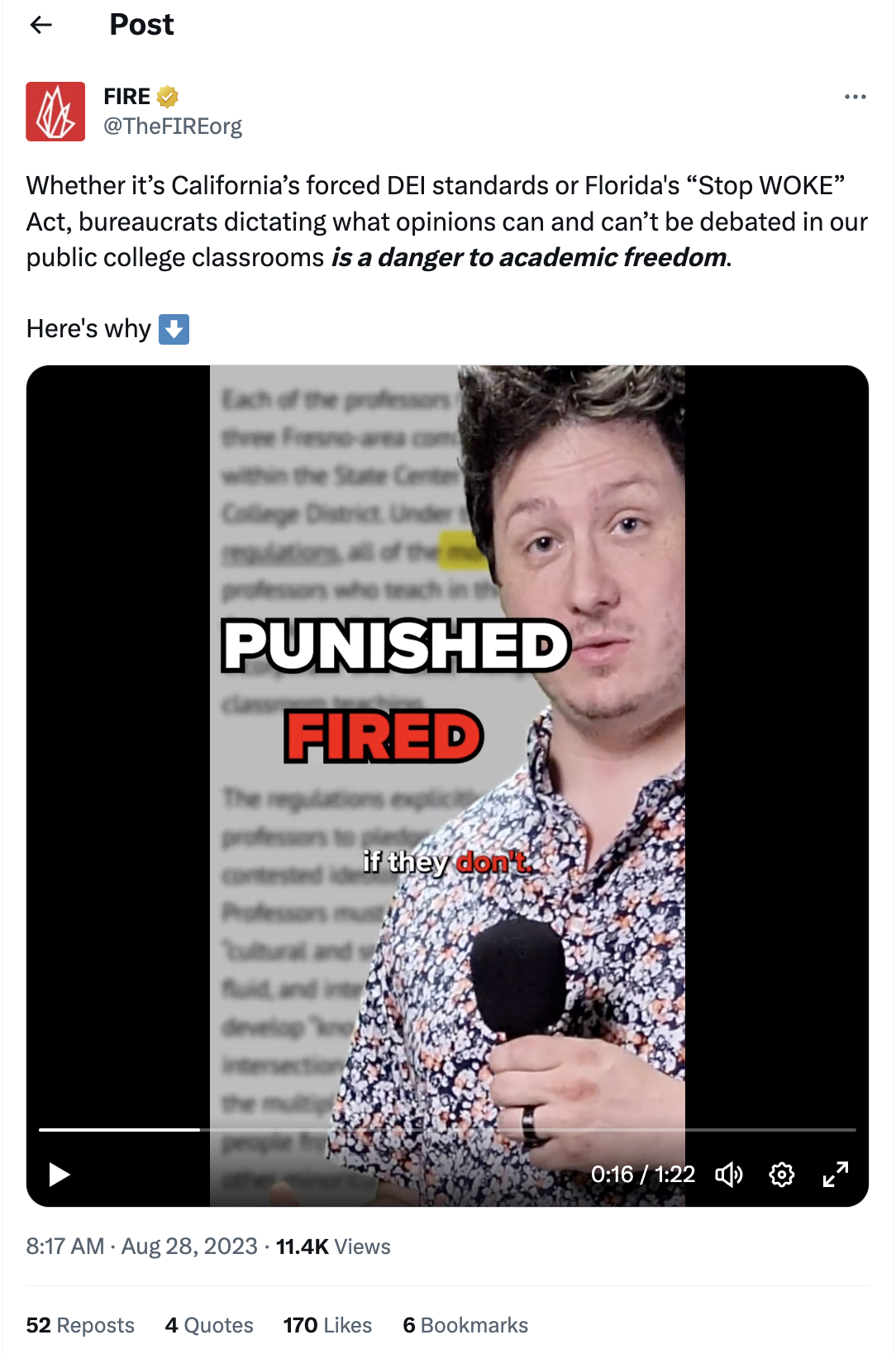Florida and California Both Receive a Failing Grade in First Amendment
If you detest Florida's Stop Woke Act, you should also detest the way that California is trying to turn college professors into its ideological puppets. These are both blatant violations of the First Amendment.
Instead of compelling speech at colleges and allowing professors to be disciplined for doing their jobs, what should college administrators be doing? Greg Lukianoff of FIRE offers this advice:
First, stop breaking the law. When a public university restricts freedom of speech, it violates the First Amendment. Although private universities do not share the same legal obligations, many of them make promises to preserve and promote the free speech rights of students and faculty, and they must honor those commitments.
Speaking of commitments, Greg’s second piece of advice is to enshrine free speech protections in official campus policy. One such policy, the “Chicago Statement,” has been adopted by more than 100 colleges and institutions and is viewed by FIRE as the gold standard for free speech commitments.
But you can’t stop there. It’s easy enough to congratulate yourself for putting a commitment in writing, but the real test is when a campus controversy arises over speech protected by the Constitution or by your school’s commitment to free speech. What do you do then? Do you try and wait it out? Hope that everything will blow over?
Well, FIRE hopes not, because your silence will have a chilling effect on free speech. As the university president, you must “defend the free speech rights of your students and faculty loudly, clearly, and early,” says Greg.
One of the most difficult things you will have to do as president will be to defend unpopular speech, even speech that you disagree with, but that is your obligation. Ultimately, the responsibility falls on college leadership, especially presidents, to publicly and unapologetically show their support for free expression. According to FIRE’s 2022 College Free Speech Rankings, students at the top-ranked schools reported that their administration’s stance on free speech is clear and that their administration would likely defend a speaker’s rights during a controversy on campus, a sentiment that is far less common at schools lower in the rankings.
What else can you do? Well, after you have planned for all of that, you should prepare to teach free speech from day one through campus activities and events. In doing so, you’ll clearly convey to students and faculty that the university places a high value on freedom of speech and civil discourse. FIRE even has free speech orientation materials on our website for interested schools.
Finally, as the leaders of scholarly institutions, you must treat commitments to freedom of speech as yet another scholarly endeavor. Universities should survey students, professors, and administrators to “understand their attitudes toward free expression, and to gather opinions of the campus climate for debate, discussion, and dissent.”




